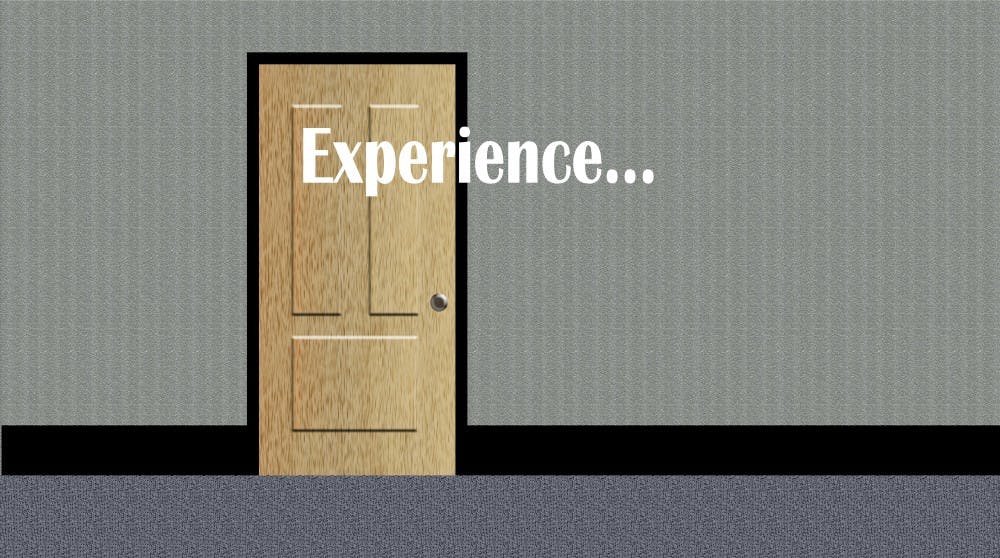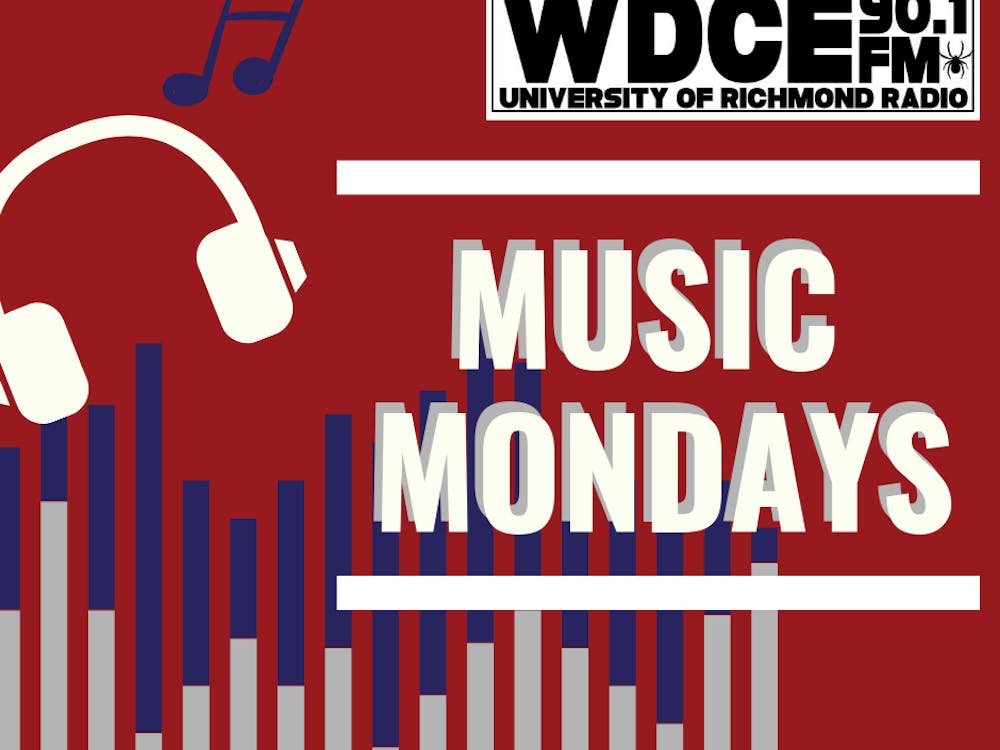Last night I had a strange dream. I dreamt that I was standing at the edge of a cliff called academia. As I stood, overlooking the jagged rocks hundreds of feet below, I heard a large crowd approaching from behind.
In an instant I saw every professor I've ever had. With concern in their eyes they asked me in unison, "What will you take with you?"
As the ground shook and the cliff began to crumble, mounds of dirt and grass suddenly transformed into the thousands of books I've never read, the millions of films I should have seen and the countless hours I didn't spend studying.
As I struggled to wrap my arms around anything tangible, I saw a floating door mixed in with the debris.
The door had the word "experience" carved into its solid oak frame. As I fought with all of my might to seek refuge on the safety of its surface, I was awoken by the sound of my racing heart.
Four years of my life have been spent at a phenomenal liberal arts institution with enough learning resources (whether they be human or text) to wrap around the earth twice, and yet I find myself wondering one thing. What did I learn while I was here?
In the book, "Academically Adrift: Limited Learning on College Campuses," authors Richard Arum and Josipa Roksa discuss the data accumulated during a study they conducted on whether college students improve their critical thinking and writing skills during the four years they attend college.
The study, which involved using a standardized test called the Collegiate Learning Assessment, indicated that more than a third of students showed no critical thinking or writing improvement after four years in college.
The results of the study also indicated that 35 percent of students said they studied five hours per week or less, with a 50 percent overall decline in the number of hours spent studying compared to years past.
Sadly, I don't doubt the data whatsoever. Excluding a small minority, we study less. I'd go as far to admit that I study less now than I did in high school. I remember spending hours on my Gateway computer typing up study guides for exams and writing extensive papers for various AP classes.
According to the study, 50 percent of the students said they didn't have a single course that required them to write 20 pages total. I'm not shocked by that statistic either.
Granted, I am a journalism major and am writing constantly, however I do have many friends who say that when it comes to writing papers, they simply aren't assigned them.
Enjoy what you're reading?
Signup for our newsletter
I can recall writing a 30-page research paper on inclusion in elementary education during my sophomore year of high school.
Thirty pages for one assignment makes all of the assignments from my general education classes at Richmond look like a two weeks paid vacation.
When I question why it is that we study less I think it all comes down to one thing: accountability. In high school I was held accountable by my parents, my teachers, my peers and more importantly, by myself.
If I didn't put in the effort, I didn't receive a good grade. And why should I have? I didn't deserve one. Which was why I made sure I worked hard -- always.
Accountability is not a word we hear very often in college, at least at this one. We're all told that college is supposed to be hard.
That's when the justifying starts. The fact that I got a C on an anthropology paper no longer has to do with the fact I wrote it the night before it was due, rather that I'm not an anthropologist. Justifications like these make lack of accountability a comfort.
Many professors are just as guilty as their students. Instead of demanding hard work, effort and, inevitably, respect from his or her students, he or she attempts to gain respect (possibly in the form of a good evaluation wink, wink) by catering to the "needs" of students.
Another possible explanation for the decrease in studying, authors of "Academically Adrift" say, may be that the pressure put on students to be socially engaged is too great. What do colleges care about? Student retention.
So a happy student means a student who is doing fun things on and around campus. Fun things on and around campus mean that student is coming back next year.
So when the admissions spiel sounds a little like, "We care about your happiness," future generations of college students should smile because now they're in on the joke.
Data from the CLA survey indicated that students who majored in more traditional liberal arts studies such as English or philosophy showed higher levels of critical thinking and writing skills. It makes sense. I can't imagine it'd be easy to B.S. your way through an analysis of the Theory of Forms.
For those of you, like myself, who are questioning your personal improvement throughout your year(s) spent at University of Richmond, a word of advice: It's not too late.
First step: Hold yourself accountable. No one will do it for you.
Second step: Challenge your teachers to challenge you.
Support independent student media
You can make a tax-deductible donation by clicking the button below, which takes you to our secure PayPal account. The page is set up to receive contributions in whatever amount you designate. We look forward to using the money we raise to further our mission of providing honest and accurate information to students, faculty, staff, alumni and others in the general public.
Donate Now



